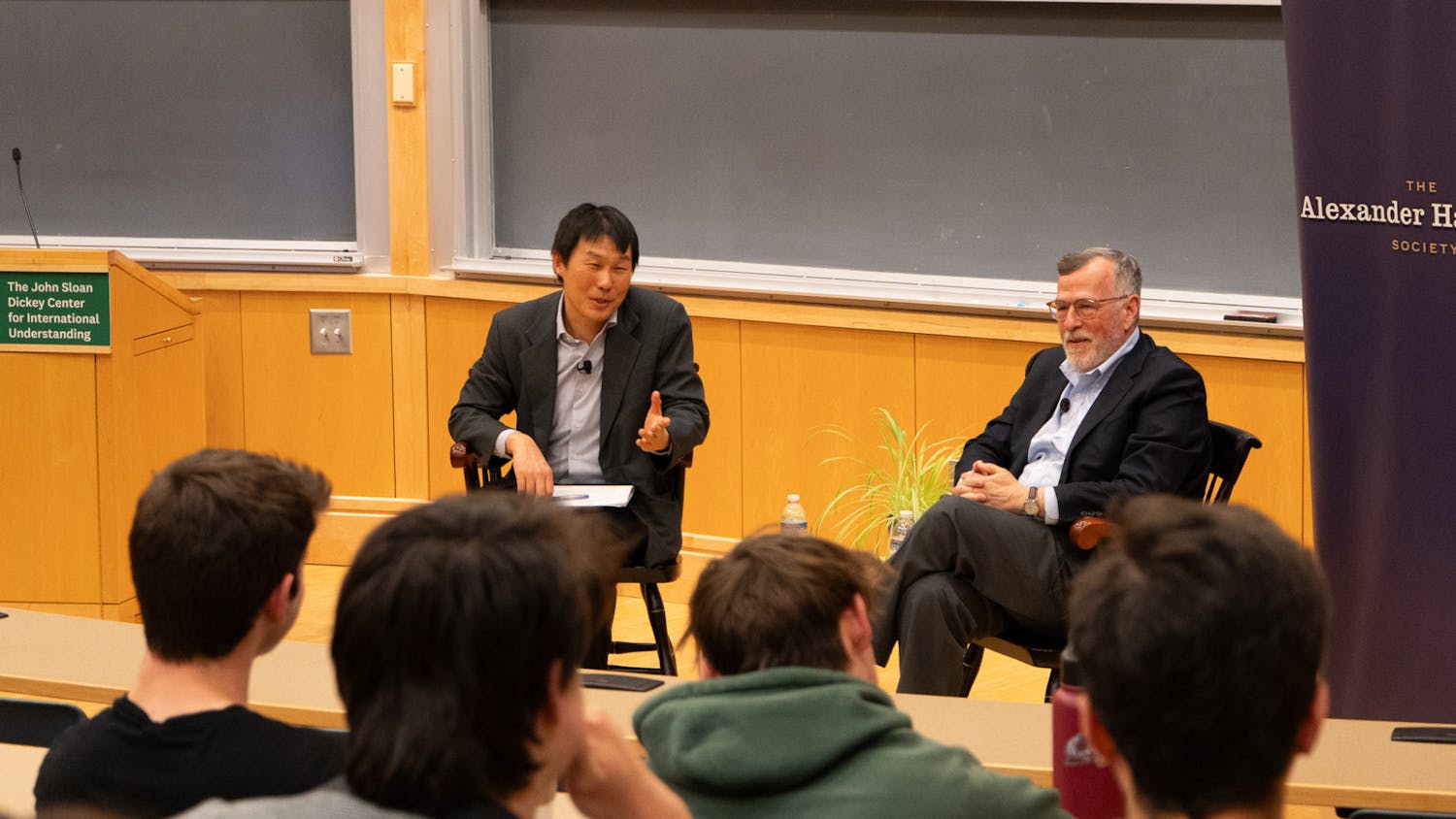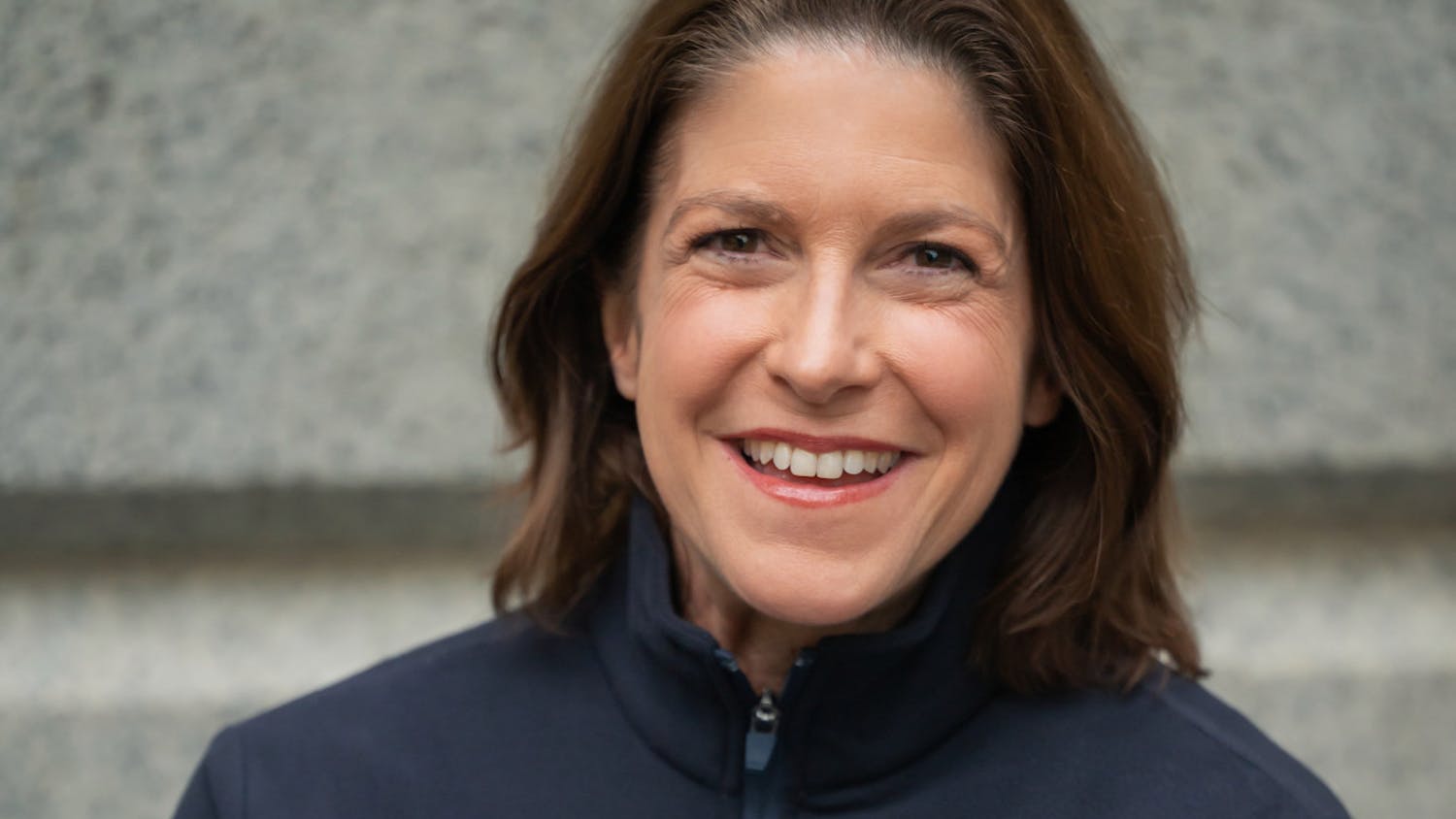Economics professors Douglas Irwin and Nina Pavcnik appeared in a video entitled “How Trade Advances Global Prosperity” at the Bloomberg Global Business Forum on Sept. 26, discussing the socioeconomic and political benefits of international trade. Over 70 heads of state and 200 business leaders attended the conference. According to Pavcnik, the event took place after the General Assembly of the United Nations and was attended by many heads of state as a result.
The video opens with three school-age children sitting at a lunch table discussing how they will trade their various lunch items with each other. In an interview with The Dartmouth, Irwin joked that the video mimics the stories he tells students about the times he makes lunch for his children.
“I give them a certain amount of stuff, but there’s no guarantee that that’s what they’re eating, or that’s what they’re consuming, because you can export and import and trade,” he said. “Your initial endowment or your initial production is no guarantee of what your consumption is going to be.”
The children negotiate their food trade until all three feel happy with the deal. The video then connects the children’s conversation with a global trade network, and economists discuss the benefits of international trade.
According to Pavcnik, international trade “enables countries to specialize in what they are really good in.” As a result, individuals and families in these specialty industries earn greater incomes and can buy cheaper goods from abroad. This specialization results in greater efficiencies that enable higher standards of living as a whole.
“Consumers benefit because they gain access to those cheaper goods,” she added.
However, Pavcnik acknowledged there are drawbacks to international trade, noting that in inefficient industries, jobs are lost due to competition. Some economies or governments can also struggle to adjust to international trade, she added.
“Trade also creates jobs in exporting industries, but what we’ve learned over time is that people who lose jobs in import-competing industries have a really hard time adjusting to that job loss,” she said.
The video also features Jayati Ghosh, a development economist and economics professor at Jawaharlal Nehru University in New Delhi, and Thomas Friedman, a three time Pulitzer prize-winning columnist for The New York Times.
When asked why Dartmouth professors made up half the participants in the video, both professors cited the strength of the international economics field within the economics department at the College.
Irwin said that Dartmouth’s “well-known niche” in international economics contributes to its “worldwide reputation.”
“We have many professors who are basically leaders in research on international economics topics,” Pavcnik said.
Pavcnik said her research focuses on international trade and development, focusing on the impact of trade on developing countries as well as the “consequences of international trade for inequality.”
“Within a country, some people will benefit from trade and some will be made worse off from trade, at least in relative terms, both in developed and developing countries alike,” she added.
Pavcnik provided China as an example of a developing country where trade granted people living in coastal areas opportunities to improve their standards of living.
“But China itself has issues instigated by globalization,” she added. “What do you do with the elderly who are left behind in rural provinces who can no longer rely on their immediate family members to take care of them?”
Christine Dong ’19, an economics major in the international economics track, conducted research with Pavcnik her sophomore year through the Dartmouth Economic Research Scholars program. She said she got to know Pavcnik well while working with her.
“She had me do some tasks that involved collecting data and organizing it into graphs, and doing literature reviews,” Dong said. “She didn’t really tell me what the bigger project was supposed to be because it was a confidential project at first, so I didn’t know that she was going to be presenting at [the Jackson Hole Economic Policy Symposium] until after it happened!”
Irwin specializes in the history of American trade policy — he has written on the economic history of U.S. trade policy and authored the book “Clashing over Commerce: A History of U.S. Trade Policy.”
“Trade takes place for everyone on a personal level, in terms of our work life, at the national level,” he noted. “Trade is natural and pervasive in human life.”




